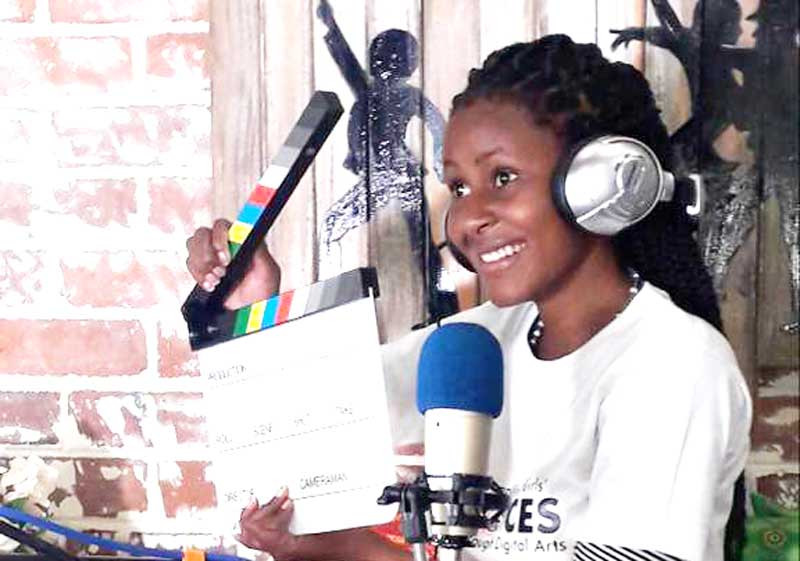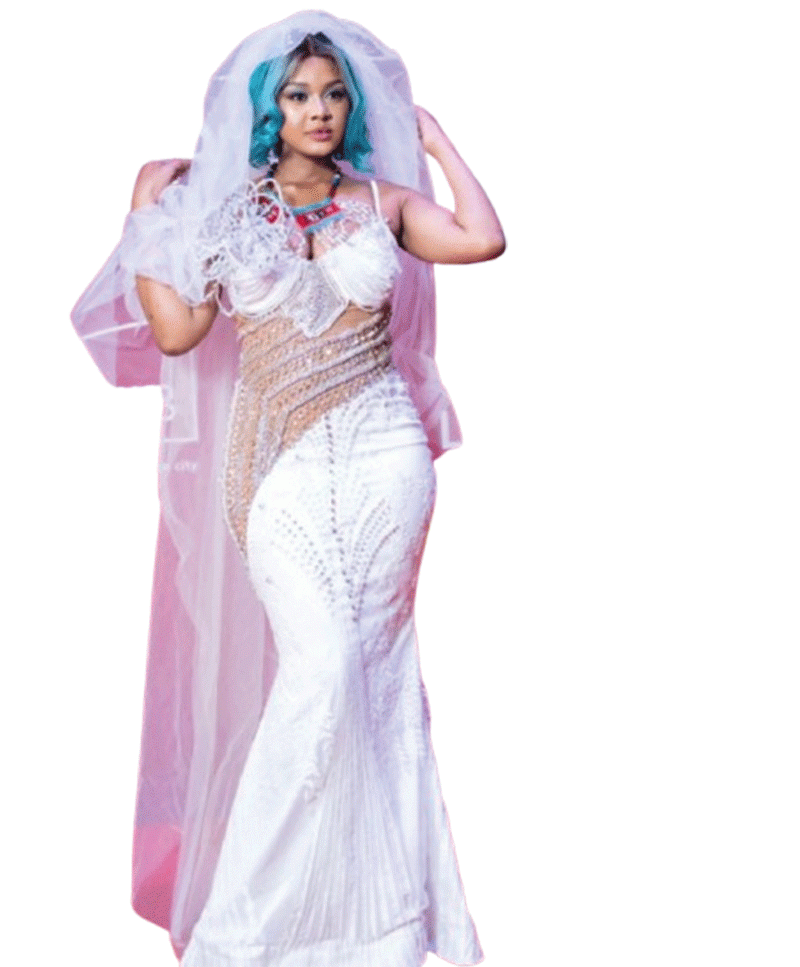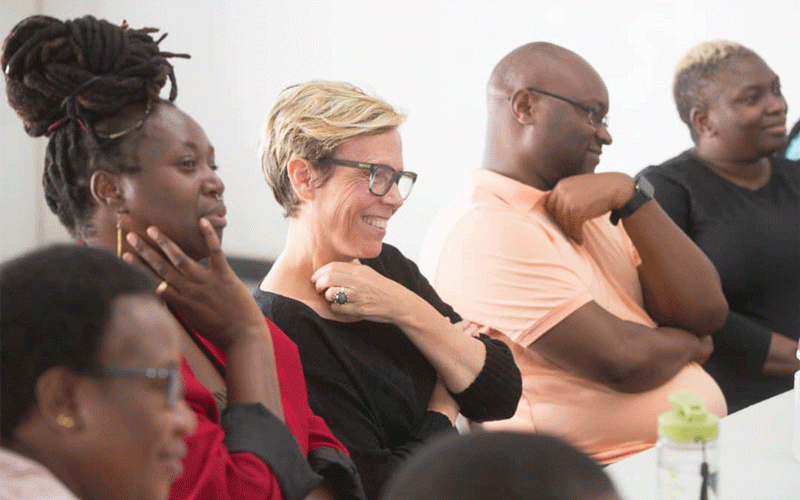
THE repressive systems of patriarchy have seen the girl child falling victim to early marriages and the violation of their rights to access to education and sexual reproductive health services.
This means that artists have an important role to lobby different private stakeholders like government ministries to ensure that the rights of girls and children are not violated.
If girls and children are capacitated, they can actually succeed at school and in their future endeavours.
For instance, Kudzaishe Chibaya is one of the girl children that are empowered through their artistic skills as an actor, poet and junior councilor.
Chibaya said she uses her poetry and acting skills to empower the girl child.
She is currently the head girl of Nketa High school, and is also a junior councilor representing ward 24 in Nketa. Chibaya is an Upper 6 arts student and is a public speaker.
“I’m a child rights advocate,” said Chibaya.
“I was selected by the Regional Network for Young People’s Trust to represent Zimbabwe in Egypt as a delegate to discuss the African Committee of Experts in regards to the children's report.
- Young entrepreneur dreams big
- Chibuku NeShamwari holds onto ethos of culture
- LSU students win innovation prize
- Mhofela finally drops album
Keep Reading
“The project only ran from 2018-19 and then stopped due to the Covid-19 pandemic.
“My specialty is public speaking, debate and poetry.
“I use these skills to raise awareness of girls’ rights.
“There is a need to create awareness of how girls can be empowered in order to make them succeed in life.
“Artists and the wider community must understand the need to raise awareness on how girls are pillars of society.
“Awareness has to be made to ensure continuation of life, as life is not possible without the girl child.
“Artists need to teach society the reality of how a small girl child can be a good daughter, a sister, a wife and a mother in the future.”
Chibaya said her important role in using her artistic capability and leadership influences, advances the cause of the girl child.
She uses poetry and acting to speak against the vulnerability stance to which the girl child is exposed to.
“If we kill the girls before birth or do not take care of them after birth, then we will not get a loving daughter, sister, wife or mother in the future,” said Chibaya.
“Unfortunately, the girl child is not being treated well in our society.
“We have to raise our voices for them.”
In her role as a junior council member in Bulawayo, Chibaya gets the chance to get involved in crafting of child rights policies, which are meant to safeguard the rights of children, and also the central need for the inclusion of children’s needs in the context of child friendly national budgets in the country.
“Well, in my role as a junior councillor — before the age of consent was changed upwards to 18 years, we got the opportunity to talk to the senior Parliamentarians about the issue, and we are happy that our suggestions were indeed considered,” she said.
In furthering her cause for the advancement of the rights of the girl child, she highlighted her consciousness of the importance of the provision of sexual reproductive health education for the girl child.
The provision of sexual reproductive health related services is something that remains central; especially for the rural girls who remain marginalised and are at high risk of abuse.
“Yes I am conscious of such, for example the issue of the 14 year old girl from Marange who died while giving birth at an Apostolic sect shrine,” Chibaya said.
“It was one of the biggest topics we talked about as well under the project Amplifying Girls Voices through Digital Arts (AGVTDA).
“I believe that the age of consent if perfectly fine at 18 — it protects minors from a lot thus curbing teenage pregnancies and risky sexual innuendos.
“However, I think the age of consent to access SRHR services should be reduced to avoid teenage pregnancies and HIV and Aids and sexually-transmitted diseases among young people.”
Generarlly, artists have the role of providing young people with the opportunities to learn new skills and gain access to safe spaces, and to encourage them to become agents of change in their own communities.
It is also in this regard that through the co-creation of a common purpose and capacity building using art as a tool, artists develop their self-confidence and their ability to express and share their views which can also be utilised in the advancing the cause of the girl child.
As an actress in both film and theatre, Chibaya also highlighted how she used her creative prowess for the advancement of the advocacy for the girl child.
“I’ve featured in The Road Not Taken, under Langelitsha Arts and Foul Play, under Amplifying Girls Voices through digital arts,” Chibaya said.
In her other artistic endeavours, she also highlighted issues that relate to the advancement of feminism as she believes that women and young girls have been sidelined.
“I’m one of the first 22 girls who were selected last year to be part of the AGVTDA Feminist ladies that believe in equality and are about changing the gender stereotypes in our society,” she said.
“I’m a podcaster and a writer as well under the project.”
In her feminist journey, Chibaya critiques the main factors that perpetuate the precedence of gender inequalities among children in rural areas, especially with regards to the effect of the culturally assigned roles which have an impact on the girl child.
“In the rural set up, culture prescribes an authoritative role for the boys and this makes the girl child to be socialised into responsibilities that are oriented to the care of the household,” she said.
“The girl child is, thus, socialised to grow with the stereotypes that place value on the precedence of forms of gender inequalities in the form of unpaid labour in care roles and the household.”
In her journey as she grows up, Chibaya aspires to see a world that treats the girl child with respect and dignity.
It is in this recourse that her ambition is to become a lawyer who will play a critical role in Zimbabwean life and an active role in the advancement of the rights of the girl child.
Raymond Millagre Langa is a musician, poet, writer, orator and founder of Indebo Edutainment Trust. Follow Raymond Langa on Facebook, Instagram on @Millagre Ray L. Email Raymond Millagre Langa on [email protected] and [email protected]










